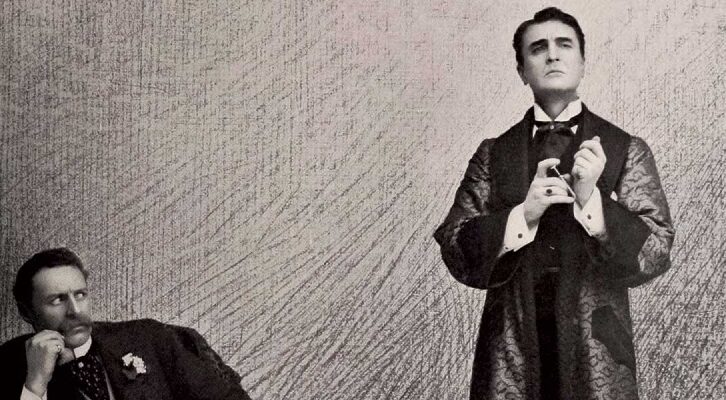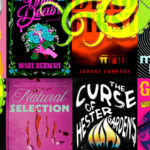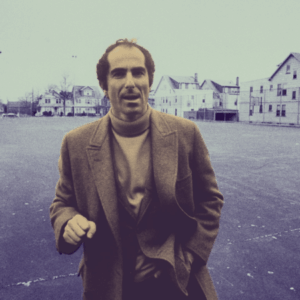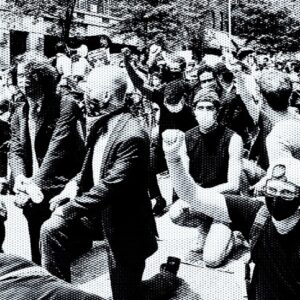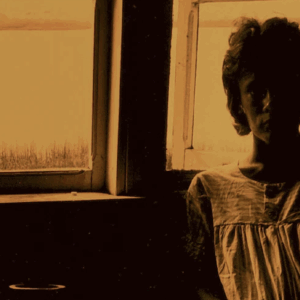
The Dirty Secret of War: It Can Be As Compelling As It Is Ugly
Philip Caputo on the Literature of War
I’ve been frequently asked if I think it’s good for a writer to have been to war. My answer is usually that war isn’t good for anyone. Setting that aside for the moment, an argument can be made that witnessing or taking part in a battle might not harm a writer—provided that he or she doesn’t see too much of it. However, as prolonged exposure to direct sunlight can blind the eyes, prolonged exposure to combat can blind the writer’s imagination, making it difficult to impossible to write about anything else.
I recall when Joseph Heller and I shared the stage at a literary festival in Cheltenham, England, in 1993. He remarked that many of the writers we associate with the war novel were not in action for very long. Hemingway, for example, served on the Italian front in WWI for a mere 12 days. Heller himself flew mostly routine missions as a bombardier in WWII. He’d hardly been shot at, and believed that if he’d been in the thick of it, he might have been unable to write the ten books that followed Catch-22.
I’m a journalist as well as a novelist who has seen the red-eyed devil from almost every angle—as a participant, an observer, and a casualty. I served 16 months with a marine infantry regiment in Vietnam. As a correspondent for the Chicago Tribune, Esquire, and National Geographic, I covered the fall of Saigon in 1975, and conflicts in Israel, Lebanon, Cyprus, Eritrea, Afghanistan, and Sudan. I got out of Vietnam without a scratch, but while reporting on the Lebanese civil war, I became part of the story when I was wounded in both legs by automatic rifle fire, suffering injuries that put me in a hospital for a month and in a wheelchair or on crutches for six more months.
I’ve written on many topics. Most of my nonfiction isn’t remotely about war. My last book, The Longest Road, was a travel memoir. But, directly or indirectly, the experiences I just mentioned have influenced almost everything I’ve put on paper. I cannot escape them; but I am not a war novelist in the same sense that Elmore Leonard was a mystery writer or Stephen King is a horror novelist. I am a writer who has written about war. That’s a distinction with a difference.
Out of my 16 books, only the first one, A Rumor of War, concerns itself with war and nothing else. Otherwise, in novels like Horn of Africa, Acts of Faith, and the novella, In the Forest of the Laughing Elephant, the field of armed strife has been to me what the sea was to Joseph Conrad and Herman Melville—a setting in which the conflicts and contradictions within our natures are revealed, with a clarity seldom seen in ordinary life. War prohibits all retreat into the familiar confines of whatever illusions people may have had about themselves, laying bare bedrock truths about their characters. Those truths can be unflattering. Some people, like the protagonist in Stephen Crane’s The Red Badge of Courage, learn that they are not as brave or as good as they had imagined themselves to be. Sometimes, but no less compelling, they discover virtues they did not realize they had. But more often, they come face to face with both the best and the worst that’s in them, their angels cohabiting, as it were, with their demons.
It’s in that broader sense that my baptism of fire in Vietnam has affected much of my fiction. A typical situation for my characters is to find themselves in a strange, dangerous place where they strive to do what’s right when everything around them prompts them to do the opposite. They are confronted by hard moral choices in circumstances stripped of the usual guideposts and of external restraints—laws, policemen, public opinion—forcing them to rely on their own inner resources. Some drill down and discover that they don’t have any.
In its prologue, I mention that A Rumor of War… ”is simply a story about war, about the things men do in war and the things war does to them.” To expand on that thought a bit—the things men do in war is often a measure of the things it has done to them
I began the book in the spring of 1967 in the bachelor officer’s quarters at Camp Lejeune, North Carolina, and finished it in a cabin in Pine Creek, Montana, in the fall of 1976. Nine years! Why so long?
There were three reasons: I had a demanding job as a newspaper reporter, along with a wife and two children to support, and counted myself lucky to find more than a few hours a month in which to write.
Next, the psychological factor. Wordsworth’s definition of poetry—it is emotion recalled in tranquillity—applies to prose as well, but I was anything but tranquil, my head filled with jumbled thoughts and memories, my heart riven by discordant feelings impossible to sort out. Anger and fear—for a long time, I couldn’t sleep without a loaded gun at my bedside. Guilt—I was almost court-martialed after my platoon killed two Vietnamese civilians mistaken for Viet Cong. Grief—the names of 18 comrades are etched into that black marble wall in Washington.
Finally, the nature of the Vietnam war worked against me. How was I to wrest meaning from a succession of random firefights and ambushes that achieved nothing, of aimless patrols run over the same ground again and again, to no effect?
By 1974, enough time had passed for me to have gained perspective, along with some peace of mind. I was then stationed in Rome as the Tribune’s correspondent. One day, making a quixotic attempt to perfect my Italian by trying to read the Divine Comedy in the original (and failing miserably), I had an epiphany. In a burst of insight, I saw parallels between Dante’s tale and the one I was trying to write. The meaning that I’d sought for so long lay not in the events but within myself and in my mental journey, through months of combat, from the false light of youthful illusion to a descent into darkness and evil, and finally, an ascent into a new and truer light of self-knowledge. You probably won’t believe this, but I saw, literally saw, the entire book scroll through my mind in seconds, so that my task then seemed to be to transcribe that vision into a coherent narrative.
But the transcription could not begin until I faced something I was reluctant to face.
Everyone accepts that war is ugly and horrible. Civilized people, however, don’t accept that it is also alarmingly attractive. This is another truth as old as war itself, and one that Homer was aware of. The phrase, “the joy of battle” occurs frequently in his verses. In an introduction to the Iliad, classical scholar Bernard Knox notes lines in the poem that combine two contrary emotions: “Man’s instinctive revulsion from bloodshed and his susceptibility to the excitements of violence.”
“The Iliad accepts violence as a permanent factor in human life,” Knox continues, “and accepts it without sentimentality, for it is just as sentimental to pretend that war does not have its monstrous ugliness as it is to deny that it has its own strange and fatal beauty.”
I wrestled for weeks with the fact that I had loved the war as deeply as I’d hated it. A part of me, and no small part, either, had proven vulnerable to the lurid excitement of violence. Jumping into a hot landing zone, leading my platoon under fire produced an intoxication no drug could match. Having been raised a good Catholic boy, I knew I wasn’t supposed to have had those feelings; yet I had. To admit to them in print seemed disgraceful, like admitting to some forbidden desire. For a long time, I tried to reconcile my love of combat with my revulsion for it, until I realized that reconciliation was impossible. As there is a duality in human nature, so is there a duality in war that must be taken for what it is.
The essential thing was to avoid egocentricity; my story could not be mine alone; it had to reflect every fighting man’s story. I plugged away, trying to present myself as a kind of Everyman, and so to create a narrative that would resonate with all my fellow warriors. And with a larger audience. I wanted to write a book that would touch people who had never seen combat, a book that would reach toward the universal, its scope encompassing not only Vietnam but war itself and the truth of war and what Wilfred Owen called the pity of war.
I was guided by a passage from the preface Joseph Conrad wrote to one of his novels:
My task, which I am trying to achieve is, by the power of the written word, to make you hear, to make you feel—it is, above all to make you see. That—and no more, and it is everything.
To make you see. That is what I wanted—to make the reader see the war, and through the seeing, experience it as if he or she were in it. The hardest part was capturing the strong, ambivalent feelings that tear at the warrior’s soul. Allow me to read an edited passage describing a helicopter assault into a landing zone under mortar and machine-gun fire.
Confronted by the indifferent forces of gravity, ballistics, and machinery, (the soldier) is himself pulled in several directions at once by a range of extreme, conflicting emotions. Claustrophobia plagues him in the small space: the sense of being trapped and powerless in a machine is unbearable, and yet he must bear it… He begins to feel a blind fury… but he has to control his fury until he is out of the helicopter and on the ground again. He yearns to be on the ground, but the desire is countered by the danger he knows is there. Yet, he is also attracted to the danger, for he knows he can overcome his fear only by facing it…
(His fear) concentrates inside him, and through some chemistry is transformed into a fierce resolve to fight until the danger ceases to exist. But this resolve, which is sometimes called courage, cannot be separated from the fear that has aroused it. Its very measure is the measure of that fear. This inner, emotional war produces a tension almost sexual in its intensity… too painful to endure for long. All a soldier can think about is the moment he can escape his impotent confinement and release his tension. All other considerations, the rights or wrongs of what he’s doing… the battle’s purpose or lack of it, become so absurd as to be less than irrelevant. Nothing matters except the final, critical instant when he leaps out into the violent catharsis he both seeks and dreads.
I rewrote passages like that 25 times before I got them right, inspired by someone closer to me than Joseph Conrad—Joseph Caputo, my father, a master machinist and a master carpenter. When he fixed a machine, it stayed fixed, when he built a room, he built it to last. That was a kind of religion for him, and cheating was heresy. I’ll always remember a remark he made when I was renovating a house in Florida in the 80s. The contractor pointed to some panelling that met unevenly at the ceiling and said that he would install crown molding to cover the gaps. “Molding,” he declared, “hides a lot of sins.” My Dad replied, “Yeah, but a good carpenter doesn’t commit any.”
I tried to apply as much fidelity to my craft as he did to his. To my mind, a writer should strive for a work that endures, and I believe I succeeded with A Rumor of War. It is still in print, still being read 40 years after its publication.
Picking it up now, I feel that it was written by someone else. In a way it was, and I read it as a story about the destruction, and eventual recovery, of one soldier’s moral character. My own. In that sense, A Rumor of War harks back to the Iliad (which is not to pridefully compare it to Homer’s epic, nor myself to him).
A similar theme runs through the literature emerging from the wars in Iraq and Afghanistan—Kevin Powers’ remarkable novel, The Yellow Birds, is but one example.
I mentioned earlier that Homer was considered a “doctor of the soul” by the ancient Greeks. In Achilles in Vietnam, Jonathon Shay goes on to say:
We need a modern equivalent of Athenian tragedy. Tragedy brings us to cherish our mortality, to savor and embrace it. Tragedy inclines us to prefer attachment to fragile mortals whom we love, like Odysseus returning from war to his aging wife, Penelope, and to refuse promised immortality.
The aim of classical tragedy was to provide catharsis by arousing emotions of pity and fear. Modern war literature isn’t capable of that; nevertheless, I believe a battle narrative can have as much power to heal as it does to thrill, horrify, terrify, enlighten, or educate. I know this from personal experience that it’s possible for a writer today to heal the spirit. Over the past 40 years, I’ve received thousands of letters and emails from people who have read A Rumor of War. One in particular sticks in my mind.
It came from a woman in Des Moines, Iowa. She wrote that her husband, a successful lawyer and a Vietnam veteran, would not, and probably could not, speak about his war experiences to his family. In the tenth year of their seemingly normal marriage, he began to behave strangely, drinking heavily, disappearing at night. She suspected he was seeing another woman. One night, he called her into his study; he had something to tell her. She was sure he was going to ask for a divorce. Instead, he made a shocking confession: he’d been contemplating suicide.
“But then he’d read your book,” she went on, and it had somehow opened him up. He spilled his guts about everything he’d seen and done in the war, and later went into therapy. In a relatively short time, he was returned to the loving man she had known. She thanked me for writing A Rumor of War, saying in so many words that it had helped her husband exorcise his demons.
I had sweated blood for nine years getting that story on paper. If it really had done what she said it had, then writing it was worth every drop.
*
Book reviewers as well as booksellers love to categorize and pigeon-hole. Go into a Barnes and Noble and you won’t find A Rumor of War, or any memoir like it, on the “Literature and Fiction” shelves; you’ll find it in the section labelled “Military History,” subsection “Vietnam.”
Any serious artist will chafe at this sort of branding. It stifles his or her creative instincts. Those of us who began our literary careers writing about war—which war doesn’t matter—are concerned with tackling life’s big questions, with capturing eternal truths by composing narratives based on our experiences and our imaginations.
Robert Olen Butler, a Vietnam veteran and an acclaimed novelist and short-story writer (his collection, A Good Scent from a Strange Mountain won a Pulitzer Prize in 1993), made this comment at a roundtable discussion with some of his peers (including me):
If the prime motive for writing is that you have a sense that the world fits together beneath this flux of experience, if you aspire to show that, then saying we are Vietnam novelists is like saying Monet is a lily-pad painter.
__________________________________
From lectures at the Vermont Humanities Council in 2016 and at Texas A&M University earlier this year. The full text appeared in the Summer, 2017, issue of The South Central Review, published by the Modern Language Association and Johns Hopkins University Press.
Philip Caputo
Philip Caputo is a renowned writer and journalist, perhaps best known of his memoir of the Vietnam War, A Rumor of War











